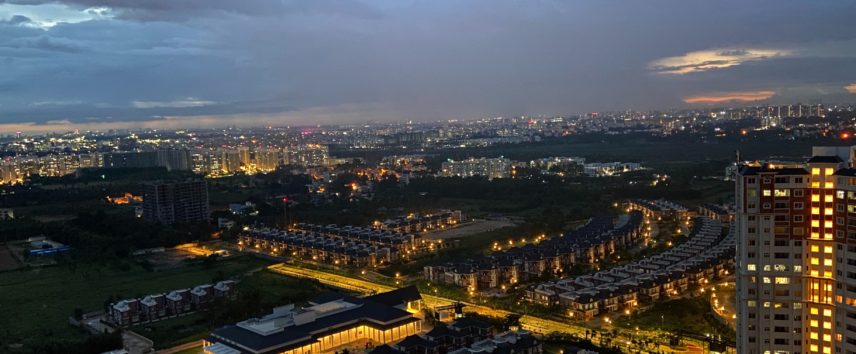Trending Now
- “I will soon make an announcement regarding a statewide tour across Tamil Nadu.” – O. Panneerselvam.
- Vatsala, Asia’s oldest elephant, has passed away at Panna Tiger Reserve; social activists mourn the death of this elephant, which lived for over 100 years.
- “The U.S. Govt earned ₹8 lakh crore this year through increased tariffs on foreign goods.” – U.S President Donald Trump.
- World No.1 Aryna Sabalenka has advanced to the semifinals in the Women’s Singles category at Wimbledon Tennis.
Columns
The political myopia of the Congress
![]() December 13, 2015
December 13, 2015
Ever since the Congress suffered its most humiliating defeat in the 16th general election, ending up with 44 seats in the 542-member Lok Sabha, the party is struggling to redefine itself. More than the loss, more demoralizing for the party has been the steady erosion of its electoral footprint in states (like Delhi, which it ruled for three consecutive terms and where it ended up with zero seats in the 2015 assembly polls), particularly North India.
Given that in the general election it ended up with a tally less than the threshold which would automatically entitle it to be anointed the leader of the opposition in the Lok Sabha and the fact it was not too far ahead of regional parties—such as the All India Anna Dravida Munnetra Kazhagam (37 seats) or the Trinamool Congress (34 seats)—it has struggled to etch a role for itself in the emerging political landscape.
Almost by default (and partly in pique), it has assumed the role of an obstructionist force in Indian politics, where the Bharatiya Janata Party (BJP) has become the central pole. Of course, the saffron party contributed by playing the role of a catalyst—first by pushing for a legislation to recast the existing land law to make it easier for businesses to acquire land and, later, with its fringe loony groups serving up a perfect script to mount a campaign on perceived intolerance.
However, this political strategy comes with associated risks. For one, the Congress will be perceived in public eye as a party with a negative agenda. In a society so driven by aspirations, this is not such a smart move. Worse, it also means that the Congress will not be setting the agenda—as Narendra Modi learnt the hard way in Bihar (where he spent more time at the stump attacking his rivals instead of etching a positive agenda as he did in the 16th general election).
But more than the damage to the party, the concern is what it means for the country. By obstructing policy change at the national level, what the Congress is doing is putting the onus, given the penchant for competitive federalism, on the states to drive the desired change.
At the least, it will reinforce growing regional inequalities as only states which have the fiscal and administrative capacities will be able to push through change on their own. There are two instances that immediately come to mind, wherein two relatively advanced states have begun to offer concessions to woo investors. In Tamil Nadu, also home to one of the automobile clusters in the country, the government came up with a new package of incentives in the Automobile and Auto Components Policy 2014.
Similarly, Maharashtra is also wooing companies with a package of fiscal incentives and business-friendly facilities. And, of course, the state scored a coup in swinging its way the $5 billion investment in Maharashtra by Foxconn, the Taiwanese contract manufacturer.
What we must bear in mind is that states, empowered by the path-breaking recommendations of the 14th Finance Commission, now have the enabling environment to strike out on their own—the upside is islands of prosperity, while the downside is that the gap with the laggard states only widens. At the basic level, the Finance Commission increased the share of states in net central tax revenues from 32% to 42% and abandoned the conventional practice of tied aid. Consequently, states now have unprecedented flexibility to design as well as manage their own spending.
What is baffling is that the Congress swears by inclusion and the underdog and, hence, logically should be more sensitive to the downside risks. And even more confusing is the latest trigger—summons by a trial court for alleged misappropriation of funds, which the Congress is linking to vendetta by the ruling National Democratic Alliance (NDA)—which has led to disruption of Parliament; by any yardstick, it is a stretch to claim that the government has a hand in the ruling of the high court.
Regardless, what the Congress is doing is once again jeopardizing the prospects of the Rajya Sabha giving its approval to the constitutional amendment to enable the introduction of the goods and services tax (GST)—a law that would for the first time economically unify the country (as goods and services move from state-to-state like they would do between countries). This is a legislation that should have been approved in the monsoon session of Parliament—but got derailed due to repeated disruptions led by the Congress and supported by sections of the opposition.
In the final analysis, it is clear that the politics of obstructionism is easy to practice. Yes, the NDA is unable to pursue the structural transformation of the economy that it so desired. But what the Congress has to figure is whether the costs outweigh the gains.
Anil Padmanabhan
Disclaimer:The views expressed above are the author’s own






















